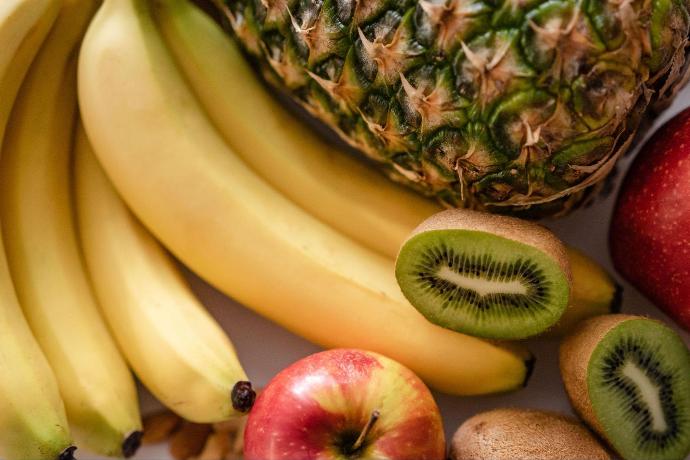How Potassium Helps Maintain Fluid Balance in the Body

Potassium is an incredibly vital mineral that performs various critical bodily functions. One of its primary responsibilities is maintaining fluid balance, essential for overall health and well-being. Let's delve deeper into how potassium aids in this crucial process and explore its emotional significance.
Electrolyte Regulation: Ensuring Cells Receive Optimal Hydration
Electrolytes play a crucial role in maintaining the delicate balance of fluids inside and outside our cells. However, in particular, potassium works in harmony with sodium to regulate water distribution, ensuring that our cells receive the right amount of hydration.
Think of potassium and sodium as a dynamic duo, working hand in hand to maintain the perfect equilibrium of fluids within our cells. This partnership helps keep our cells functioning optimally, providing a sense of harmony and balance vital for our emotional well-being.
Osmotic Pressure: Preserving Cellular Hydration Levels
Potassium also influences osmotic pressure, the water balance between our cells and the surrounding fluid. By regulating osmotic pressure, potassium prevents excessive water retention or loss, helping our cells maintain proper hydration.
Imagine osmotic pressure as a delicate dance, where potassium takes the lead to ensure our cells remain hydrated without becoming bloated or dehydrated. This dance provides that our cells feel nourished and satisfied, contributing to a sense of emotional fulfillment within our bodies.
Fluid Transport: Facilitating Cell Hydration and Function
Another way potassium maintains fluid balance is by assisting in fluid transport across cell membranes. It plays a vital role in preserving the integrity of cell membranes, allowing fluids to move freely into and out of cells. This process is crucial for the overall hydration and functioning of cells.
Think of potassium as a diligent transporter, facilitating the flow of fluids to where they are needed most. By ensuring that cells receive the hydration they require, potassium promotes a sense of vitality and energy, nurturing our emotional well-being.
Kidney Function: Supporting Optimal Fluid Balance
The kidneys play a pivotal role in maintaining fluid balance by filtering waste products and excess fluids from the blood. Potassium aids in regulating kidney function, ensuring optimal fluid balance and preventing fluid retention or dehydration.
Consider potassium as a guardian of the kidneys, guiding them in maintaining fluid equilibrium. By supporting the kidneys' ability to eliminate excess fluids, potassium promotes a sense of cleanliness and purification, nurturing our emotional state.
Muscle and Nerve Function: Promoting Communication and Regulation
Potassium is essential for proper muscle and nerve function. It facilitates nerve impulses and muscle contractions, including those that regulate fluid balance. Adequate potassium levels promote efficient communication between nerves and muscles, regulating fluid distribution.
Imagine potassium as a symphony conductor, ensuring that every muscle contraction and nerve impulse is orchestrated harmoniously. This symphony of communication and regulation promotes a sense of coordination and balance within our bodies, nurturing our emotional stability.
The Importance of Potassium in Fluid Balance

Potassium contributes to fluid balance beyond its direct role in maintaining hydration levels. Let's explore the emotional significance of potassium in ensuring overall fluid balance within the body.
Blood Pressure Regulation: Cultivating Stability and Calmness
Potassium plays a significant role in regulating blood pressure. Adequate potassium intake helps counterbalance the effects of sodium, reducing fluid retention and supporting healthy blood pressure levels. By promoting proper blood pressure regulation, potassium indirectly contributes to maintaining fluid balance throughout the body. Think of blood pressure as the ebb and flow of life within us. By ensuring the harmonious balance of potassium and sodium, our bodies cultivate stability and calmness, fostering deep emotional well-being.
pH Balance: Sustaining Equilibrium and Harmony
Potassium helps maintain the body's pH balance, which is crucial for fluid balance. It works alongside other electrolytes to ensure a stable pH level, preventing excessive acidification or alkalization that could disrupt fluid balance.
Consider pH balance as the equilibrium of our inner environment. By upholding this delicate balance, potassium allows our bodies to thrive in a state of harmony and vitality, promoting emotional equilibrium.
Hydration and Cell Function: Nurturing Vitality and Renewal
Optimal hydration is essential for properly functioning cells, tissues, and organs. Potassium supports cellular hydration by ensuring water and other essential nutrients can enter cells freely. This process helps cells perform their functions efficiently and improves overall fluid balance. Imagine cellular hydration as a fountain of life within us. Potassium acts as the caretaker of this fountain, ensuring that it overflows with vitality, renewal, and emotional well-being.
Electrolyte Balance: Fostering Unity and Balance
As mentioned earlier, potassium is an electrolyte that collaborates with other electrolytes to maintain fluid balance. By working together, these electrolytes ensure that the body's fluid levels remain in equilibrium, promoting optimal health and well-being. Think of electrolyte balance as a symphony of unity and balance within our bodies. Potassium plays its part alongside other electrolytes, creating a symphony that fosters unity and balance, nurturing our emotional and physical harmony.
References:
Healthline. What Does Potassium Do for Your Body? A Detailed Review. [Online] Available at: https://www.healthline.com/nutrition/what-does-potassium-do
Human Nutrition - Electrolytes Important for Fluid Balance. [Online] Available at: https://pressbooks-dev.oer.hawaii.edu/humannutrition/chapter/electrolytes-important-for-fluid-balance/
Beetroot Pro. Potassium: The Mineral for Sports Performance. [Online] Available at: https://beetrootpro.com/blogs/news/unlock-your-athletic-potential-with-potassium-the-mineral-for-sports-performance
FAQs about How Potassium Helps Maintain Fluid Balance in the Body
Q: What are the best dietary sources of potassium?
Potassium-rich foods include bananas, oranges, spinach, avocados, tomatoes, potatoes, and yoghurt. Incorporating these nutrient-dense foods into your diet can help you meet your daily potassium requirements.
Q: Can low potassium levels lead to dehydration?
Yes, low potassium levels can contribute to dehydration. Potassium helps regulate fluid balance, and insufficient levels may lead to an imbalance in hydration levels. It is essential to maintain adequate potassium intake to support optimal fluid balance.
Q: Are potassium supplements necessary for maintaining fluid balance?
A balanced diet that includes potassium-rich foods is usually sufficient to meet your potassium needs. However, in certain circumstances, such as when prescribed by a healthcare professional, potassium supplements may be necessary to address specific deficiencies.
Q: Can excessive potassium intake disrupt fluid balance?
While potassium is essential for fluid balance, excessive intake can have adverse effects. It is crucial to strike a balance and consume potassium within the recommended daily limits to maintain optimal fluid balance and overall health.
Q: Are there any medical conditions that can affect potassium levels and fluid balance?
Certain medical conditions, such as kidney disease and certain gastrointestinal disorders, can impact potassium levels and fluid balance. If you have any concerns about your potassium levels or fluid balance, it is recommended to consult a healthcare professional.
Q: Can exercise affect potassium levels and fluid balance?
Intense physical activity and excessive sweating can lead to potassium loss, which may impact fluid balance. Staying hydrated during exercise and replenishing electrolytes, including potassium, is essential to maintain optimal fluid balance.
Conclusion
Potassium's role in maintaining fluid balance is vital for our emotional and physical well-being. By embracing the power of potassium and incorporating potassium-rich foods into our diet, we nurture our bodies and promote a sense of harmony and balance. Let's celebrate potassium as the guardian of our emotional and physical well-being. Cheers to potassium, the essence of vitality and equilibrium!







![[AF] Anti-Fatigue Caps](/web/image/product.product/1053/image_256)